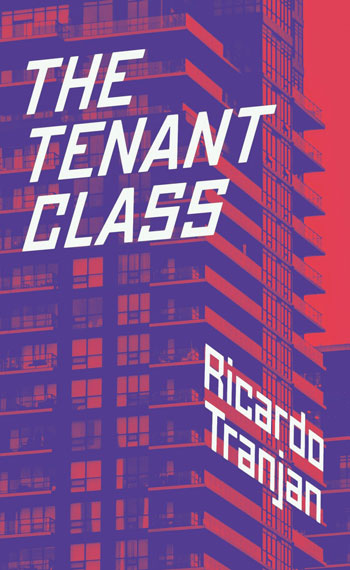Alongside boom-and-bust cycles, calls for rent controls come and go in Alberta. In a province where home ownership remains an attainable dream for many, the negative reputation of renters persists. Public policies favour the interests of landlords, and tenant organizing is intermittent. But as the housing market in Alberta’s largest cities begins to mimic the daunting trajectory of Vancouver and Toronto, perhaps it’s time for Albertans to reconsider our typecasting.
In his latest book, The Tenant Class, political economist Ricardo Tranjan challenges assumptions about renters and eloquently explains how the prevailing misconceptions produce and reproduce class disparities. “In a society where home ownership is the hallmark of a successful middle-class life, the tenant class is also against myths and lies that denigrate its public image and hinder organizing efforts,” Tranjan writes. “While landlords extract ever-more profits [from] the tenant class, Canadian society treats tenants as an inferior group.”
While the class struggle between workers and employers has given rise to the labour movement, the stigma associated with the tenant class undermines efforts to organize. “False myths can harm an individual’s sense of self-worth and hinder organizing efforts, by making people feel uncomfortable or even ashamed of belonging to the tenant class,” he writes.
Perceiving their precariousness as a temporary condition, tenants often fail to demand that their rights be protected, and instead acquiesce to the admonitions landlords deliver. In the face of rising rents, landlords warn against rent controls, claiming rent caps disincentivize investment—and that without investment, tenants would not have a place to live at all. But ever-growing rents aren’t a natural fact of life, Tranjan writes. “What renders rental units ‘unaffordable’ are landlords who charge too much for them. And governments that allow it to happen.” For this reason, Tranjan argues that there is no such thing as a housing crisis, just a lack of political will to act against landlords and their vested interests. Because “mom-and-pop” landlords are often mischaracterized as “families whose financial security is on par with their tenants,” the wealth that private landlords amass at the expense of tenants is hidden in plain sight.
But tenants have more power than they think—even in Alberta. Drawing from the success of tenant movements in Toronto, Vancouver and Montreal, Tranjan encourages others to organize. “People concerned with housing justice should look at the alleged housing crisis for what it really is: a poorly regulated market that extracts income from working-class people and channels it to higher-income segments of Canadian society.”
Ximena González is a writer and editor in Calgary.
_______________________________________


